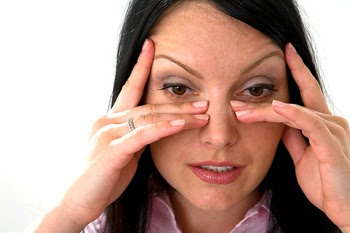Follow these tips to get a better night's sleep and boost your energy during the day.
SET THE STAGE FOR SLEEP
Put your pillow to the test: If you're not lying on a pillow that effectively cradles your head and neck, you're creating unnecessary muscle tension, which can leave you feeling drained when you wake up. To tell if your pillow is doing its job, lay it over your extended arm. Does it have a slight fold or does it hang there like a saddlebag? If it collapses, your pillow is past its prime.
Ready, set, smell: Lavender, chamomile and jasmine are known for their soothing and relaxing nature.
• Lavender: Research has shown that breathing the aroma of lavender oil before bed produces sedative effects and raises the amount of slow-wave (the most restorative) sleep.
• Chamomile: The smell of chamomile has been shown to promote sleep. In fact, people who drank chamomile tea after dinner were more relaxed than those who drank hot water, Japanese researchers found.
• Jasmine: Let this fragrance permeate your bedroom. Study participants who breathed in jasmine-infused air experienced improved sleep quality and reported feeling lower levels of anxiety the next day. Set an oil diffuser with the scent on your nightstand.
• Lavender: Research has shown that breathing the aroma of lavender oil before bed produces sedative effects and raises the amount of slow-wave (the most restorative) sleep.
• Chamomile: The smell of chamomile has been shown to promote sleep. In fact, people who drank chamomile tea after dinner were more relaxed than those who drank hot water, Japanese researchers found.
• Jasmine: Let this fragrance permeate your bedroom. Study participants who breathed in jasmine-infused air experienced improved sleep quality and reported feeling lower levels of anxiety the next day. Set an oil diffuser with the scent on your nightstand.
Make your bed: A National Sleep Foundation poll in 2011 found that people who made their bed every day were more likely to report sleeping well than those who didn't. It's unclear why pulling up your covers, tucking everything in and fluffing those pillows on rising might bring pleasant dreams, but who's to argue with the facts.
GET ACTIVE AND FEEL REFRESHED
Start off with a stretch: Waking up with a stiff neck or cramped shoulders can drain your energy before you even hit the shower. Stretch your arms overhead, or try a simple supine twist. For an easy stretch, lie on your back, then hug your knees into your chest. Drop your knees to your right side, gently resting your right hand on your left leg and stretching your left hand out to the left at shoulder height; turn head to left. Hold for eight breaths, then return to center and repeat on the other side. It only takes 2 minutes and will really perk you up!
Ride a bike: A study done at the University of Georgia showed that adults suffering from sustained fatigue who biked at a low intensity for 20 minutes, three times a week, felt 65 percent less tired after six weeks than a group that didn't exercise. Those results were even better than ones for a group that did moderate-intensity exercise (the effect of which was similar to using prescription amphetamines).
Go for a walk: An Oregon State University Study of more than 2,600 people ages 18 to 85 found that 2 1/2 hours of moderate to vigorous exercise weekly (the national guideline for good health) can yield a 65 percent improvement in sleep quality. An easy way to meet that 150-minute goal: Walk briskly for 30 minutes five days per week. Some people are sensitive to working out before bedtime and others aren't. Avoid strenuous exercise two hours before you turn in.
Change it up: Making a simple switch to your daily routine can give you a jolt of energy, because it can prompt your brain to release dopamine. Try taking a different route to the office, or walk the opposite way around the block.






